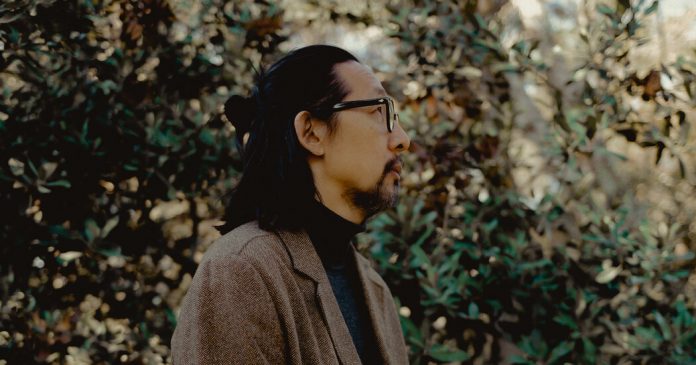“We have now lots of language for this disaster that we’re having proper now the place extra persons are bored than ever, and extra persons are feeling depressed and meaningless than ever,” Kogonada mentioned. But “we now have a lot extra entry to issues that really feel enjoyable and distracting.” He introduced up a short historical past of the phrase “boredom,” and the way it’s now used to evade the silence and weight of feeling existence, “in order that we don’t need to confront the very feeling that could be all the things to us,” he mentioned. “If we may keep in it and see it, possibly this factor that we see on a regular basis, which is solar coming and casting a shadow, can present one thing for us.”
Kogonada doubled again, laughing at himself — he’s not claiming that is essentially the important thing to life. However, as an alternative of the concrete solutions to enlightenment he yearned for in his youthful days, looking in faith and in cinema, he’s come to gravitate extra towards discovering that means and thriller in on a regular basis life, in expertise that’s inclusive and accessible to everybody.
In “After Yang,” Yang’s mundane recollections immediate Jake to confront his absence in his personal life. “It’s each a grieving for Yang but additionally a grieving for time misplaced,” Kogonada mentioned, including, “possibly all grieving is about misplaced time.”
Staring out throughout a pond shimmering within the afternoon solar, Kogonada mentioned he must make peace with the elevated consideration that might inevitably include this movie, which, together with the 4 episodes he directed of the upcoming Apple TV+ collection “Pachinko,” could be seen as an establishing second for him as an auteur. Mockingly, this era as an artist underneath an alias is the closest he has ever felt to being himself.
As for that primal worry of absence, Kogonada is safer than ever. In a flashback scene, Yang tells his mom, Kyra (Jodie Turner-Smith), a couple of quote from the thinker Lao-tzu. “What the caterpillar calls the tip,” he recites, “the remainder of the world calls a butterfly.”
“I don’t know if I want the consolation of one thing present afterwards,” Kogonada mentioned, echoing a line that Yang says within the scene. “No matter nothing or absence could also be, there’s one thing that I’ve far much less worry about, and I can virtually really feel consolation in it.” He thought once more. “Perhaps that nothing is definitely the seeds of one thing else. Perhaps it’s one thing, nothing, one thing once more.”


